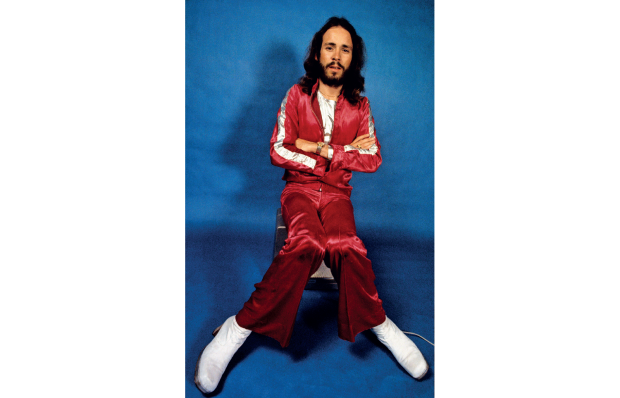There is a phrase that has been fashionable for years in wonkland — places like the upper echelons of the civil service and high-end think tanks. The phrase is ‘evidence-based policy-making’. There, I bet that’s got you going.
When I was a citizen of wonkland and heard those words from the Sir Humphreys and Lady Susans I would typically roll my eyes or head for the door, because you can generally gather whatever evidence you want to justify whatever policy you want. In the end, you have to believe in something. Have the courage of your convictions and be judged by the results.
But the reason I bring this up is not to ruin your day with policy-wonk gobbledegook, but to do something far more exciting — to admit that even I can sometimes be wrong; that occasionally there really is evidence that is so strong, so overwhelming, so spectacularly, triumphantly, incontrovertibly persuasive of a certain point of view and course of action that you just have to suck it up and concede.
For anyone interested in improving the state of our country, irresistible policy evidence of that kind is coming along next week. It’s called Glastonbury (or Glastonberry, as my new American compadres call it. For some reason I prefer that — it’s certainly better than the frankly unacceptable ‘Glasto’). If you want to know how to achieve those things the politicians promise but never quite deliver — a ‘dynamic economy’, a ‘strong society’, ‘better quality of life’ — stop looking at those worthy think-tank reports about the latest childcare scheme from Denmark or pro-enterprise initiative from Texas: just head down to Worthy Farm in Somerset, home of the Glastonbury Festival of Contemporary Performing Arts. Really, it’s got so much to teach us.
I know what you’re thinking. The music is ‘ghastly’. The people are ‘filthy’. It’s all drug-taking and climate-change lecturing and vegan veggie-burger eating. Well, yes, there’s a bit of all of that. But you’ll find terrible music, dirty people, drugs of various kinds, political lectures and disgusting food everywhere. It’s a question of taste. Personally, I love Glastonbury.
I’ve been going on and off for more than 20 years and it accounts for some of the most special times and fondest memories of my life. Of course I understand that traipsing around muddy fields is not everyone’s cup of chai; that a night under canvas would bring many people out in hives — metaphorically if not literally; that for many people Glastonbury could call to mind entropy rather than ecstasy. But I’m not trying to persuade you to go. In fact, please don’t. It’s hard enough to get tickets as it is.
My aim here is different: to persuade you — yes, you! — as part of the great British intelligentsia to suspend questions of personal taste and consider for a moment that Glastonbury could be a model for radical policy reform.
Because Glastonbury, far from being a left-wing utopia, operates according to a principle that many politicians — especially Conservative ones — hold dear: ‘trust the people’. The festival is a temporary town of around 150,000 people. Largely, they are left to their own devices. There are no rules. No officious busybodies popping up every five minutes to tell you that you can’t walk here or sit there. No well-meaning government ‘initiatives’ to ‘help’ and ‘protect’ you. The few police officers you see are smiling and kind.
It reminds me of one of my favourite public policy experiments: the removal in the Dutch town of Oudehaske of all traffic lights, road markings, speed limits and traffic signs so road-users would be forced to interact with each other and consciously navigate the streets. ‘When you treat people like idiots, they’ll behave like idiots,’ the project’s leader, traffic engineer Hans Monderman, said. ‘Who has the right of way? I don’t care. People here have to find their own way, negotiate for themselves, use their own brains.’ By removing external controls imposed by bureaucrats, the transport system was made more human. And everything improved: fewer accidents, better traffic flow.
It’s the same kind of thing at Glastonbury. The absence of authority does not result in anarchy, but order: democratic order created by people, rather than the maddening, soul-crushing bureaucratic order we experience daily in modern life. It leads to better standards of behaviour, a civility that is sorely lacking in our bossed-about world. At Glastonbury, people are kind. They look out for others and help them. They share things. I know that kindness doesn’t sound very brainy, but isn’t a kinder world exactly what most of us want to see?
And by the way, it’s not just social policy. Glastonbury is one of the few places you can go where the tide of corporate homogenisation is held back. There’s no one yelling at you about the unexplained item in the bagging area, because the businesses are small, independent, often local. Glastonbury is a carnival of entrepreneurship.
So here’s my pitch to the policy wonks. Look at the evidence. Drop your complicated systems of control and regulation and bossy rules and annoying ‘improvements’. If you want to make the world a better place, try a simpler solution. Let people relate to each other as people; on a human scale, in a human way. Things are better when they are more human.
Just one last thing though: while the evidence of widespread marijuana and MDMA use at Glastonbury, combined with widespread order, low crime and civilised behaviour, points towards a more liberal approach to those drugs …the nitrous oxide ‘balloons’ up at Stone Circle in the early hours? It’s so un-mellow. Can we please ban that?
Got something to add? Join the discussion and comment below.
Get 10 issues for just $10
Subscribe to The Spectator Australia today for the next 10 magazine issues, plus full online access, for just $10.
Steve Hilton is a former adviser to David Cameron. His book, ‘More Human’, is published by WH Allen.
You might disagree with half of it, but you’ll enjoy reading all of it. Try your first month for free, then just $2 a week for the remainder of your first year.














Comments
Don't miss out
Join the conversation with other Spectator Australia readers. Subscribe to leave a comment.
SUBSCRIBEAlready a subscriber? Log in